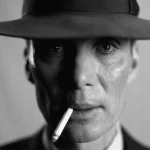The Overconfidence of Youth, by David Bax
Gavin Wiesen’s The Art of Getting By is the kind of movie I would’ve written when I was fourteen. I don’t mean to say that it generally seems like it was written by a fourteen-year-old, though it does. I mean that I specifically could have created these characters and situations at that age. I, like the film’s lead, George (Freddie Highmore), was convinced I was the smartest person at my high school, including student and faculty both. I explained away my bad grades by romanticizing my laziness, choosing to portray it as an existentialist response to the world. The problem with this movie is that it does nothing whatsoever to disabuse its hero of these notions, instead choosing to confirm them. Just as I would have done had I written it at fourteen.
In fact, George is never anything less than perfect and nearly saintly. He suffers in the movie but always at the hands of the cruel world that was apparently never meant for one as beautiful as he. Every choice he makes and every conclusion he has come to is the right one. The only obstacles are the teachers, parents and classmates who don’t understand him and the girls who are too interested in the base pursuit of sex with confident, desirable males to see the truth and beauty of his poet’s soul, which exists on a plane above such animalistic instincts. It’s easy to be nobly abstinent when no one’s interested in making out with you anyway. Just ask fourteen-year-old me.
George’s virtue doesn’t start and end with not getting laid, though. He also manages to be long-suffering without ever being mean. He never uses that brilliant wit and that sharp tongue to lash out at those who continually hurt and reject him. Thus The Art of Getting By commits the most common mistake in this kind of post-Catcher in the Rye iconoclastic high schooler fiction: it forgets that its protagonist is a teenager.
Similarly, George’s mother (Rita Wilson) seems to have forgotten his age, or perhaps forgotten that she’s his mother. The level of permissive parenting on display would nearly qualify as neglect in the real world. Here, though, it is merely a tactic used to afford the lead opportunity to live like an adult when the movie needs him to. At least Emma Roberts’ Sally has an excuse for being allowed to conduct her life largely unsupervised, even if it’s simply lazily written in a different way. Her mother, played by the very talented Elizabeth Reaser, is the kind of boozy, flirty, trashy mother that screenwriters love to create in order to make the woman’s offspring more sympathetic. This film, though, is uninterested in exploring the ways being raised by such a person would affect a child. Sally, just like George, appears to have emerged as a grown-up without any formative influence from the role models in her life (for an example of this mother-daughter relationship done correctly, observe the characters of Rayanne and Amber on My So-Called Life).
Still, Roberts is the best thing on display here, in terms of performance. While she still may be too green for heftier roles than this one, she possesses the on-camera ease and magnetic presence of a natural. I look forward to seeing her in films to come. On the other hand, Freddie Highmore continues to be as frustratingly shallow as ever. What directors like Marc Forster and Tim Burton apparently see as compelling fragility has always read to me as the discomfort of a neophyte. Imagine if Daniel Radcliffe had never challenged himself to grow beyond his performance in the first Harry Potter film and you’ve got the now almost twenty-year-old Highmore.
Buried beneath the suffocating script are a passel of other talented actors whose efforts are wasted. Wilson and Reaser, along with character actor Sam Robards, are the parental figures, while the teachers’ slots are filled by Blair Underwood, Alicia Silverstone and the guy who played the undertaker in the Coen brothers’ True Grit. All have been very good in the past. All are barely even given a chance to exist here.
Like other masturbatory faux-indie films before it, most notably Zach Braff’s Garden State, The Art of Getting By leaves most of the emotional work to the soundtrack. The Shins, who memorably changed your life in the worst scene in Braff’s film, show up again. Pavement’s “Here,” 30 seconds of which is better than this entire movie, scores the dumb, climactic montage. French Kicks and the great Leonard Cohen also have their names tarnished but at least it’s something to listen to.
Gavin Wiesen is actually not an awful director. He’s competent and could probably have a successful career making slightly above average made-for-TV movies. However, as a writer, there may be no hope for him. No matter how competently shot and edited the film may be, it is in service of a screenplay that betrays nothing at all in the way of a point of view. Practically definitively hackneyed, it is no more than a collection of clichés, employed without imagination. As such, The Art of Getting By is so inert it’s barely even a movie.
































That is exactly what I thought when I saw ads for this movie – “I would’ve written something like this in middle school” when people still imagined “oh I’ll graduate High School and just ‘backpack around Europe’ for a year and meet a mysterious artist” – now that I’m 17 I am 1) extremely annoyed by that cliche and 2) don’t know anybody who would do this because it’s not so easy to just “backpack” around Europe and you probably shouldn’t go by yourself anyway. Also the Freddie Highmore character is pretty much impossible to find in reality (thank God). Yeah, I’m just really tired of seeing commercials for this.